Nightclubs are packed with energy and excitement, but even minor incidents can quickly escalate into serious conflicts. Often, the initial triggers seem absurdly trivial, but there’s more to it than meets the eye.
Understanding these dynamics can be your best tool in planning for a safer, more enjoyable night out.
Almost all nightclub violence starts over something minor
According to security experts like Alan Latu (who is also a Foundation presenter), almost all nightclub violence starts over something minor.
According to Alan: “If we look at the 15 years I worked as a bouncer myself, and then at the 57 nightclubs that we ran security for – you could say that every single fight we saw there, or at least 90 plus per cent, all started over something so small.
“An example might be somebody accidentally spilling a drink on somebody else.
“Now let’s think about that. You don’t walk through a nightclub where’s there’s only two people a distance of five metres apart.
“If you tip a drink on somebody, chances are someone’s bumped you who has been bumped themselves. What’s the worse-case scenario?
“You’ve got a wet sleeve, pants or dress. What does that turn into – somebody turning around and saying: ‘Why did you do that?’
“The questions start, fights start and then there’s violence.”
Looking at someone the “wrong way” is another common precursor to violent arguments.
“I’ve seen it so many times. And the challenge that we find now is that when a fight starts, it isn’t just one person to one person – it’s their friends, bystanders and all of a sudden we have these outer layer of incidents that occur.
“And again – for what? Because somebody looked at somebody the wrong way?”
In loud, tightly packed spaces, misunderstandings happen quickly and heightened emotions can push tempers to the breaking point.
An Australian judge once noted in a case where a woman had an epileptic fit and bumped a woman at a club:
“It takes no more than a bump on the dance floor or a bump when people are passing outside the hotel for there to be an all-out war,”
The woman was repeatedly kicked and stomped.
Alcohol and its role in violence
Australia has long had a reputation for hard drinking, and studies show that binge drinking is prevalent among young people in nightclubs.
According to a 2024 study of 21,000 people, two out of five young women aged 18 to 24 consume alcohol outside of the recommended guidelines (40 per cent), compared to 45 per cent of young men.
Excluding domestic violence, NSW police recorded a touch under 8000 alcohol-related assaults in 2023. More than 2800 of these occurred at licensed premises.*
The Pat Cronin Foundation is not against alcohol when used responsibly. Be aware however that alcohol lowers inhibitions and amplifies aggression.
In fact, alcohol is involved in about 70% of violent assaults in Australia. Keeping your wits about you is crucial, especially in a high-energy environment.
The science: Why crowded spaces make us angry
Feeling threatened: Any crowded space with a lot of energy, loud noise and alcohol is going to test your triggers. When personal space is limited, we often feel “invaded”, increasing our propensity for anger.
Increased Sensory Overload: In crowds, the brain processes a massive amount of sensory input. Sensory overload can occur when the brain is overwhelmed, leading to confusion, disorientation, and a heightened sense of danger.
Personal space violation: Research shows that when people feel their personal space (about 18 inches around them) is invaded, the brain reacts with discomfort and sometimes aggression as a defence mechanism
- Oxytocin and trust: The brain’s release of oxytocin, the hormone associated with bonding and trust, decreases in crowded environments, which may explain why people feel less safe and more defensive around strangers.
- Heightened anxiety: Studies reveal that up to 70% of people report feelings of anxiety in extremely crowded places, such as public transport or concerts, due to perceived loss of control or escape options.
- Crowd density and panic: Crowd psychology research shows that when crowd density exceeds five people per square metre, the brain starts to perceive the environment as dangerous, even if no immediate threat exists.
Coping strategies: Try to position yourself in a less crowded area or against a wall where fewer people are likely to bump into you. Practise deep breathing techniques to help manage feelings of anxiety or aggression.
Feeling disrespected:
Around 70 per cent of Australians aged 18-24 have engaged in binge drinking at nightclubs. Loud environments and alcohol consumption can lower inhibitions, leading to pushing, shoving and verbal spats.
Coping strategies: Focus on staying hydrated and pacing your drinks to keep your composure.
Unfair treatment: Let’s face it, getting served in a busy venue can be difficult. There’s always someone pushing in – either at the door to the venue or at the bar itself.
Coping strategies: Remind yourself that staff are often under pressure and not deliberately ignoring you. If you’re with friends, take turns handling tasks like ordering to reduce stress and ensure everyone gets served fairly
Stress: Loud music and flashing lights can also increase our stress levels and lower tolerance for frustration – making us prone to minor provocation. In fact, the National Drug Research Institute found that many physical altercations in Australian nightclubs are triggered by this combination.
Coping strategies: Step outside or to a quieter area periodically to give your senses a break. It can also help to find a focal point, like a friend or a piece of decor, to help divert your attention from overwhelming stimuli.
People also ask:
Why do crowds make me angry?
Crowds can trigger anxiety, leading to frustration and anger. Anxiety often stems from feeling overwhelmed by a stressful environment, while anger typically arises from frustration in response to that stress.
Why do fights happen at clubs?
Nightclubs are often a perfect storm for conflict. The combination of crowded spaces, loud music, and high-energy atmospheres can easily raise stress levels. Add alcohol into the mix, and minor misunderstandings—like a bump or spilled drink—can quickly escalate into heated arguments. When personal space is constantly invaded, and communication is difficult due to noise, tensions rise, making altercations more likely.

